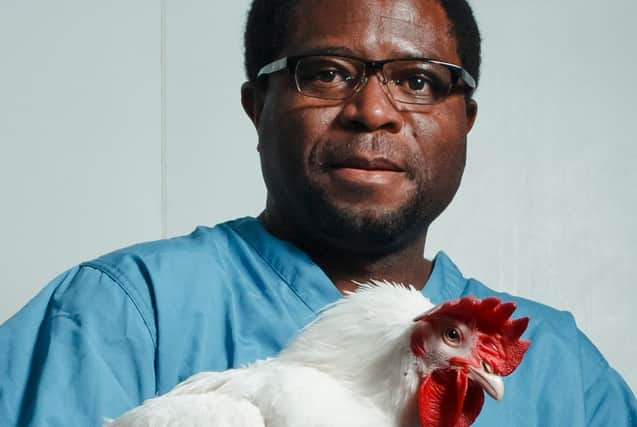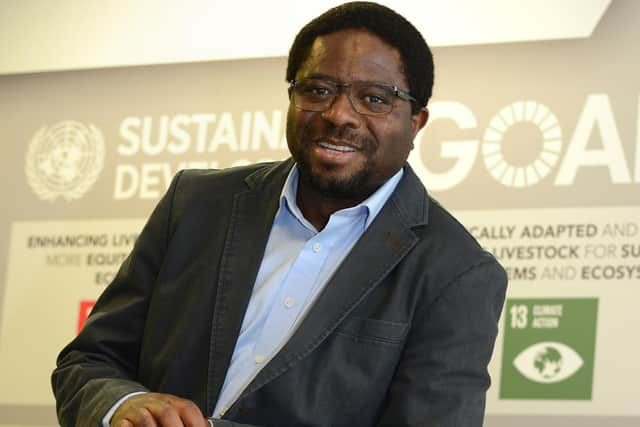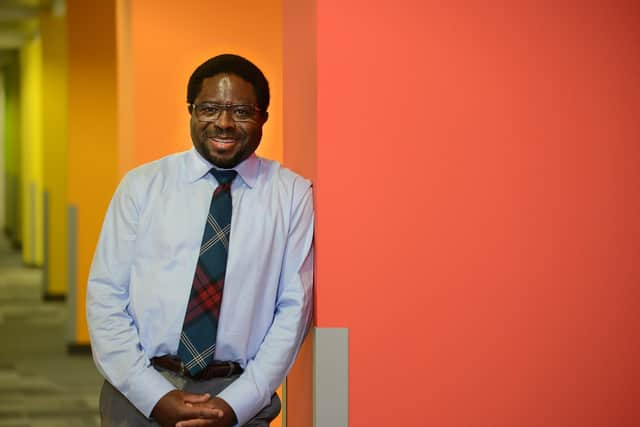Covid-19 has caused 'profound disruption' to food systems, warns Edinburgh livestock researcher


Professor Appolinaire Djikeng, Director of the Centre for Tropical Livestock Genetics and Health (CTLGH) at Edinburgh University’s Roslin Institute, is the only person in Scotland to appear on the list.
He was also awarded a Nelson Mandela Justice Award from the UNESCO Center for Peace in August, in recognition of the work he does to “make a difference in the lives of others”.
Advertisement
Hide AdAdvertisement
Hide AdProfessor Djikeng’s research centres on genetics at the heart of food supply, working to improve the productivity and resilience of livestock in low-income countries.


“It’s about having the right animal in the right place,” said Professor Djikeng, adding that genetics is one of four key areas for successful livestock development alongside animal health, feeding, and the markets within which they are sold.
He is concerned about the “profound disruption” the Covid-19 pandemic has caused to food supply in lower income countries, as many people rely on being able to travel to markets and interact with others on a daily basis, which has been restricted.
The CTLGH is a partnership between the Roslin Institute, the International Livestock Research Institute, and Scotland’s Rural College. One aim of its work is to heighten resilience, which can protect against unforeseen events like pandemics, in all countries, regardless of income.
“The food system is quite a complex thing [...] it’s very different in the community I’m referring to to where we are in Scotland. But regardless of where you are, Covid-19 with the enforced restrictions has had very profound disruptions on the food system,” Professor Djikeng said.


“Here in Scotland very fortunately we only faced some shortages - fresh milk not being there, this and that - but at least there was still enough to get by.”
While the situations are very different, many of the challenges faced around food supply in these communities are similar to those in Scotland, he added.
“The livestock system and agricultural development are much more advanced and sustainable in Scotland, but we are still generally facing very similar issues,” he said.
“If you look at the climate crisis, for instance, global warming and things like that, we are invariably facing similar challenges. So what we are doing in low and middle income countries, really could have an impact on agriculture in Scotland.”
Advertisement
Hide AdAdvertisement
Hide AdProfessor Djikeng said he is proud of the work being done at the Roslin Institute and the recognition he has received by being included on the Bill and Melinda Gates Foundation list - which he insists is a testament to the work of the whole institution, not just himself.
“Scotland is a leading nation for animal science. We can go back to Dolly the sheep, created in a world innovation in Scotland, and many other things that you can claim to have come from Scotland.
“They have been used in advanced economies to really transform the livestock industry. And when the three organisations come together they strongly believe they can harness those scientific capabilities to drive the same transformation in low and middle income countries.”
He added: “Scotland is a relatively small nation but the impact of what goes on here is very well felt across the world.
“I'm really pleased that through the modest work that we do we are adding on to that legacy the university and Scotland has created.”